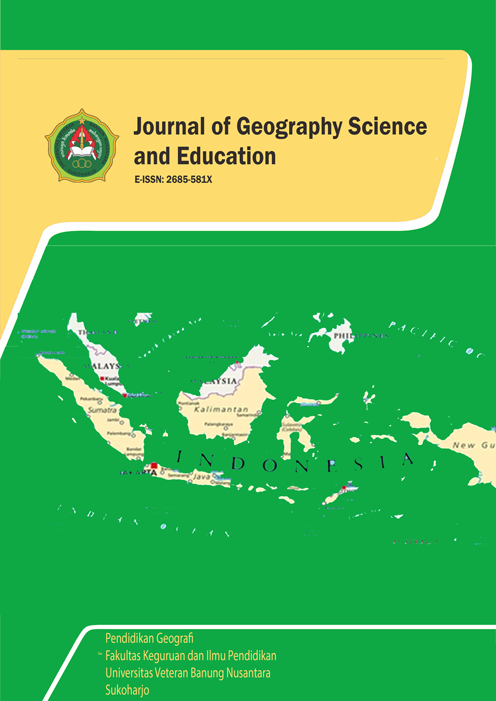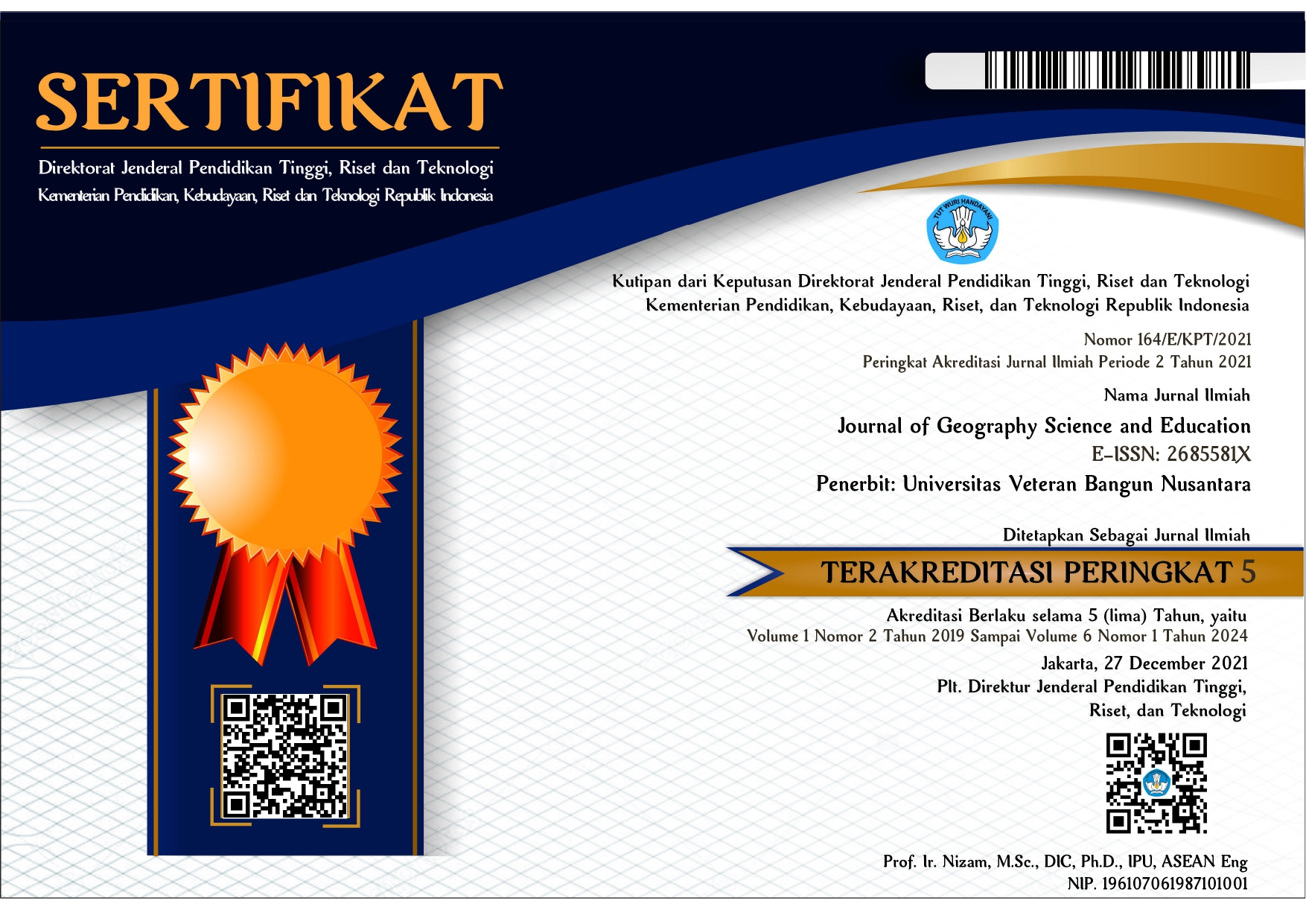Empowerment of the Tourism Sector fot the Economic and Welfare System in Wonodadi Village, Pracimantoro District, Wonogiri Regency
DOI:
https://doi.org/10.32585/jgse.v5i1.2321Kata Kunci:
Tourism Sector, Economic System, Welfare in the VillageAbstrak
The empowerment of the tourism sector for the economic and welfare system in Wonodadi Village here requires the role of the local community in its development. Here it can be done through the stages of planning, implementation, and supervision. This study aims to determine the involvement of local communities in empowering tourist villages and this development can have a positive impact on the local community's economic system in Wonodadi Village, including: in the form of increased income for the surrounding community, increased employment and business opportunities for local communities, and increased government revenue through tourist fees. The less dominant role of the government can be utilized by the surrounding community in the development of tourist villages and can increase space for the community to participate. This data collection was carried out using in-depth interviews and questionnaires which were filled in directly by local residents. The analytical method used is SWOT analysis (Strengths, Weaknesses, Opportunities, and Threats).
Unduhan
Unduhan
Diterbitkan
Cara Mengutip
Terbitan
Bagian
Lisensi
License and Copyright Agreement
In submitting the manuscript to the journal, the authors certify that:
- They are authorized by their co-authors to enter into these arrangements.
- The work described has not been formally published before, except in the form of an abstract or as part of a published lecture, review, thesis, or overlay journal. Please also carefully read JGSE's Posting Your Article Policy at http://pubs2.ascee.org/index.php/ijele/about/editorialPolicies#custom-5
- That it is not under consideration for publication elsewhere,
- That its publication has been approved by all the author(s) and by the responsible authorities – tacitly or explicitly – of the institutes where the work has been carried out.
- They secure the right to reproduce any material that has already been published or copyrighted elsewhere.
- They agree to the following license and copyright agreement.
Copyright
Authors who publish with Journal of Geography Science and Education agree to the following terms:
- Authors retain copyright and grant the journal right of first publication with the work simultaneously licensed under a Creative Commons Attribution License (CC BY-SA 4.0) that allows others to share the work with an acknowledgment of the work's authorship and initial publication in this journal.
- Authors are able to enter into separate, additional contractual arrangements for the non-exclusive distribution of the journal's published version of the work (e.g., post it to an institutional repository or publish it in a book), with an acknowledgment of its initial publication in this journal.
- Authors are permitted and encouraged to post their work online (e.g., in institutional repositories or on their website) prior to and during the submission process, as it can lead to productive exchanges, as well as earlier and greater citation of published work.
Licensing for Data Publication
Journal of Geography Science and Education use a variety of waivers and licenses, that are specifically designed for and appropriate for the treatment of data:
- Open Data Commons Attribution License, http://www.opendatacommons.org/licenses/by/1.0/ (default)
- Creative Commons CC-Zero Waiver, http://creativecommons.org/publicdomain/zero/1.0/
- Open Data Commons Public Domain Dedication and Licence, http://www.opendatacommons.org/licenses/pddl/1-0/
Other data publishing licenses may be allowed as exceptions (subject to approval by the editor on a case-by-case basis) and should be justified with a written statement from the author, which will be published with the article.
Open Data and Software Publishing and Sharing
The journal strives to maximize the replicability of the research published in it. Authors are thus required to share all data, code or protocols underlying the research reported in their articles. Exceptions are permitted but have to be justified in a written public statement accompanying the article.
The associated persistent identifiers (e.g. DOI, or others) of the dataset(s) must be included in the data or software resources section of the article. Reference(s) to datasets and software should also be included in the reference list of the article with DOIs (where available). Where no domain-specific data repository exists, authors should deposit their datasets in a general repository such as ZENODO, Dryad, Dataverse, or others.
Small data may also be published as data files or packages supplementary to a research article, however, the authors should prefer in all cases a deposition in data repositories.






